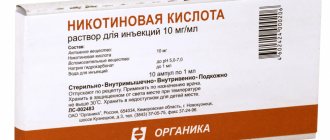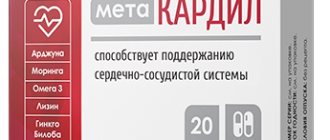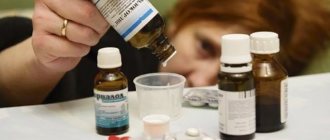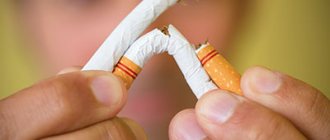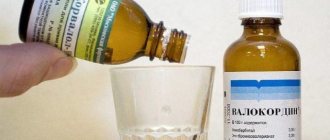general characteristics
Nicotinic acid, also called vitamin PP, is a vitamin necessary for most redox processes in the human body, as well as for carbohydrate metabolism in cells.
People get this substance not only from medications. Vitamin PP is found in significant amounts in some foods:
- buckwheat grain;
- bread made from rye flour;
- beans;
- beet;
- mushrooms;
- meat;
- offal;
- a pineapple.
Nicotinic acid, vitamin PP or vitamin B3 is a unique substance that takes part in various types of metabolism in the human body
In medicine, nicotinic acid is used as a vitamin, as an antipellagritic (for the treatment of pellagra, a disease resulting from poor nutrition) and a lipid-lowering drug. It is impossible not to note the connection between nicotinic acid and blood pressure.
All about vitamin B3 (PP, niacin, niacin; nicotinamide)
Pyridinecarboxylic acid-3; Nicotinic acid amide
Description
Vitamin PP exists in two forms - nicotinic acid and nicotinomide.
Sources
Beef liver, yeast, broccoli, carrots, cheese, cornmeal, dandelion leaves, dates, eggs, fish, milk, peanuts, pork, potatoes, tomatoes, wheat sprouts, whole grain products. Herbs rich in vitamin PP: alfalfa, root burdock, catnip, cayenne pepper, chamomile, chickweed, eyebright, fennel seed, fenugreek, ginseng, hops, horsetail, mullein, nettle, oats, parsley, peppermint, raspberry leaves, red clover, rose hips, sage, sorrel.
Content of vitamin B3 (PP, nicotinic acid) in Argo dietary supplements: Mental Comfort, Sugar Balance, Cardio Support, Brain Booster, Antioxidant, Health, Longevity, salad oils “Healing”, “Bogatyrskoye”, Cedar Power, Multi-Complex, Nettle Extract , Nutricons
Action
The active effect of vitamin PP on metabolic processes is due to its inclusion in the composition of niacinamide adenine dinucleotide (NAD) and niacinamide adenine dinucleotide phosphate (NADP), which are cofactors of a number of enzymes. In particular, niacinamide is part of codehydrases, which are hydrogen carriers to flavoprotein enzymes, and thereby regulate redox processes in the body.
| A nicotinic acid | Nicotinamide |
Niacin is the only vitamin that traditional medicine considers a cure. It may in fact be the most effective cholesterol-lowering “cure” available. Vitamin PP is a B-complex component that is critical for energy production and well-being on many levels, especially for heart health and optimal circulation . It is involved in more than fifty reactions during which sugar and fat are converted into energy. It is also essential for amino acid metabolism and is involved in the conversion of fats into substances called eicosanoids, hormone-like agents that control our body's metabolic pathways. Niacin is a vitamin unrivaled in cholesterol control. In people who have already experienced a myocardial infarction, niacin increases the chances of survival to a greater extent than pharmaceutical drugs. That was the conclusion of a study called Project Coronary Medicine, which compared niacin with two anti-cholesterol drugs to see which best curbed non-fatal heart attack and prolonged life after a heart attack. Even several years after stopping treatment, the death rate was lower only among those taking niacin. Niacin simultaneously combats four major risk factors for cardiovascular disease:
High triglyceride content. Recently recognized as an independent risk factor of critical importance, these blood fats signal the presence of insulin disorder type II diabetes and hypertension. The best way to manage high triglycerides is to sharply reduce your intake of sugar and other carbohydrates, but niacin supplements can provide strong support by lowering triglyceride levels. | The use of nicotiminide is recommended for the treatment of the following pathological conditions: Diabetes. Science has known since 1940 that people with type I diabetes require less insulin injections if they take niacinamide regularly. This substance can also, to a certain extent, prevent damage to the pancreas, leading to the body losing its ability to produce its own insulin. It was from these considerations that researchers proceeded when they gave nicotinamide as a preventative measure to approximately eighty thousand children (from 5 to 7 years old) in New Zealand. Nicotinamide reduced the incidence of type I diabetes by more than 50%. Osteoarthritis. Nicotinamide also reduces pain and improves joint mobility in osteoarthritis. Other conditions. Like niacin, nicotinamide has a mild sedative effect and is useful in the treatment of a variety of emotional and neuropsychiatric disorders, including anxiety, depression, impaired attention, alcoholism and schizophrenia. In large doses, it acts as an antioxidant and in laboratory cell culture studies was active against the HIV16 virus. |
Daily requirement
The daily need for nicotinic acid (and nicotinamide) is about 20 mg for an adult, about 25 mg for heavy physical labor, and 6 mg for children from 6 months to 1 year; from 1 year to 1.5 years - 9 mg; from 1.5 to 2 years - 10 mg; from 3 to 4 years - 12 mg; from 5 to 6 years - 13 mg; from 7 to 10 years - 15 mg; from 11 to 13 years - 19 mg; for boys 14-17 years old - 21 mg; for girls 14-17 years old - 18 mg.
Symptoms of hypovitaminosis
Pellagra, corroding ulcers, dementia, depression, diarrhea, dizziness, fatigue, headaches, indigestion, insomnia, pain in the limbs, loss of appetite, low blood sugar, muscle weakness, cracked skin and inflammation.
Indications
| A nicotinic acid | Nicotinamide |
| Nicotinic acid is prescribed as a specific agent for the prevention and treatment of pellagra. In addition, it is used for gastrointestinal diseases (especially in patients with gastritis with low acidity), for liver diseases (acute and chronic hepatitis, cirrhosis), for spasms of blood vessels in the extremities, kidneys, and brain (see Nigexin, Nikoverin, Nikoshpan, Xanthinol nicotinate), for neuritis of the facial nerve, for atherosclerosis, long-term non-healing wounds and ulcers, infectious and other diseases. | Indications and doses are basically the same as for nicotinic acid (pellagra, gastritis with low acidity, chronic colitis, hepatitis, cirrhosis of the liver, etc.) Nicotinamide, however, is not used as a vasodilator. |
Dosages
| Nicotinamide |
| Nicotinamide is prescribed orally or parenterally. For prophylaxis, adults are prescribed 0.015-0.025 g, children - 0.005-0.01 g 1-2 times a day. For pellagra, adults are prescribed 0.05-0.1 g orally 3-4 times a day. day, for children - 0.01 -0.05 g 2-3 times a day for 15-20 days, for other diseases - 0.02-0.05 g for adults and 0.005-0.01 g for children 2 -3 times a day. Intravenous, intramuscular or subcutaneous injection of 1-2 ml of 1%; 2.5% or 5% solution 1-2 times a day. Form of release: powder; tablets of 0.015 g (for preventive purposes) and 0.005 and 0.025 g (for therapeutic purposes); ampoules of 1 ml of 1% solution, 1 and 2 ml of 2.5% solution. Storage: list B. In a tightly closed container, protected from light; ampoules - in a place protected from light. |
Safety
| A nicotinic acid | Nicotinamide |
| Persons with hypersensitivity to nicotinic acid should be prescribed nicotinamide, except in cases where nicotinic acid is used as a vasodilator. It should be borne in mind that long-term use of large doses of nicotinic acid can lead to the development of fatty liver degeneration. To prevent this complication, it is recommended to include foods rich in methionine in the diet, or prescribe methionine and other lipotropic agents. | Daily doses of nicotinamide practically do not cause vasomotor reactions. Allergic reactions are excluded due to the lack of influence on mast cells. Therefore, it is more preferable as part of complexes, and allergic reactions to complexes with nicotinamide do not occur, and if they do, they are caused by other components (for example, B vitamins). |
Effect on pressure
How does nicotinic acid work, does it increase or decrease blood pressure?
In some cases, nicotinic acid at elevated pressure dilates blood vessels, thereby reducing its level. But the vitamin is not administered intravenously for hypertension or hypertensive crises, as this can cause a sharp decrease in blood pressure and lead to collapse. Such changes negatively affect the condition of blood vessels, especially arteries, sometimes causing damage.
There is no evidence that nicotinic acid increases blood pressure. The drug is prescribed to people with normal and high blood pressure as part of complex therapy for diseases of an inflammatory nature.
Drug interactions
Nicotinic acid is used with caution simultaneously with other vasoactive drugs, since it enhances the effect of vascular relaxation, which causes a drop in blood pressure.
Concomitant use with bile acid sequestrants is also dangerous, since they also reduce cholesterol in the blood. If there is a need for both drugs, nicotinic acid should be taken no earlier than an hour after taking the sequestrants.
Vitamin B3 may help improve blood sugar levels. Therefore, patients with diabetes should undergo treatment under the supervision of a specialist. Additionally, you should keep in mind that taking dietary supplements containing nicotinic acid reduces the effectiveness of the following medications:
- "Glipizide";
- "Insulin Lizpro";
- "Gliquidone";
- "Phenobarbital".
In addition, for any other prescriptions, you should inform your doctor about taking nicotinic acid in order to exclude dangerous combinations.
Release forms of this product
The product is available in powder, tablets, solution for intramuscular or intravenous injection. The tablets contain 50 mg of nicotinic acid, and the solution concentration is 0.1%. This solution fully corresponds to a 1.7% sodium nicotinate solution. Both solutions are available in 1 ml ampoules.
The drug is produced in the form of tablets of 50 mg and 1% injection solution in ampoules of 1 ml
Nicotinic acid tablets: instructions for use
It is recommended to start taking Vitamin B3 tablets with a minimum course of 50 mg of the drug per day at a time. In the absence of negative reactions, you can gradually increase the daily dose if prescribed by your doctor. For better absorption of nicotinic acid, it is necessary to take it with food, and what is important is that the food must contain fat, because Vitamin B3 is a fat-soluble substance.
In the first week of use, redness of the facial skin, a feeling of heat, and itching may occur. Symptoms usually disappear over time if the course of treatment is continued without increasing the dosage, in a stable manner.
For what diseases is it taken?
The drug is widely used not only for medicinal purposes, but also as a prophylactic agent. Vitamin PP is used for:
- pellagra;
- circulatory disorders;
- obesity and other lipid metabolism disorders;
- trophic ulcers of the lower extremities;
- hemorrhoids;
- intoxications;
- atherosclerosis.
Vitamin PP is used as a means of prevention:
- with gastritis with decreased acidity;
- to prevent recurrence of hemorrhoids;
- reducing the risk of cancer;
- improved vision or memory;
- acceleration of fat breakdown in obesity.
To treat high blood pressure, the vitamin is used mainly as part of complex therapy.
For preventive purposes, vitamin PP is prescribed for the purpose of: rapid breakdown of fats during weight loss
Dosage and method of application for pressure
For children under 16 years of age, a solution of nicotinic acid is administered in the following dosage:
- for prevention – no more than 5–20 mg per day;
- other indications (including high blood pressure) – 2–30 mg two to three times a day.
Adult patients use the following doses:
- prevention – 15–25 mg per day;
- other indications – 20–25 mg.
In such cases, the drug is preferably administered intramuscularly. Although intravenous administration of this drug is contraindicated for hypertension, if the need arises, for example, with an ischemic stroke, 1–5 ml of 1% drug is administered, diluted in 5 ml of saline. It should be remembered that this action increases the risk of allergies.
In what cases should it not be used?
Nicotinic acid for blood pressure is strictly contraindicated for:
- liver diseases;
It is contraindicated to use the drug without a doctor’s prescription and determination of an individual dose.
- exacerbations of gastrointestinal diseases;
- carbohydrate metabolism disorders;
- acute bleeding;
- hemorrhagic stroke;
- individual intolerance.
